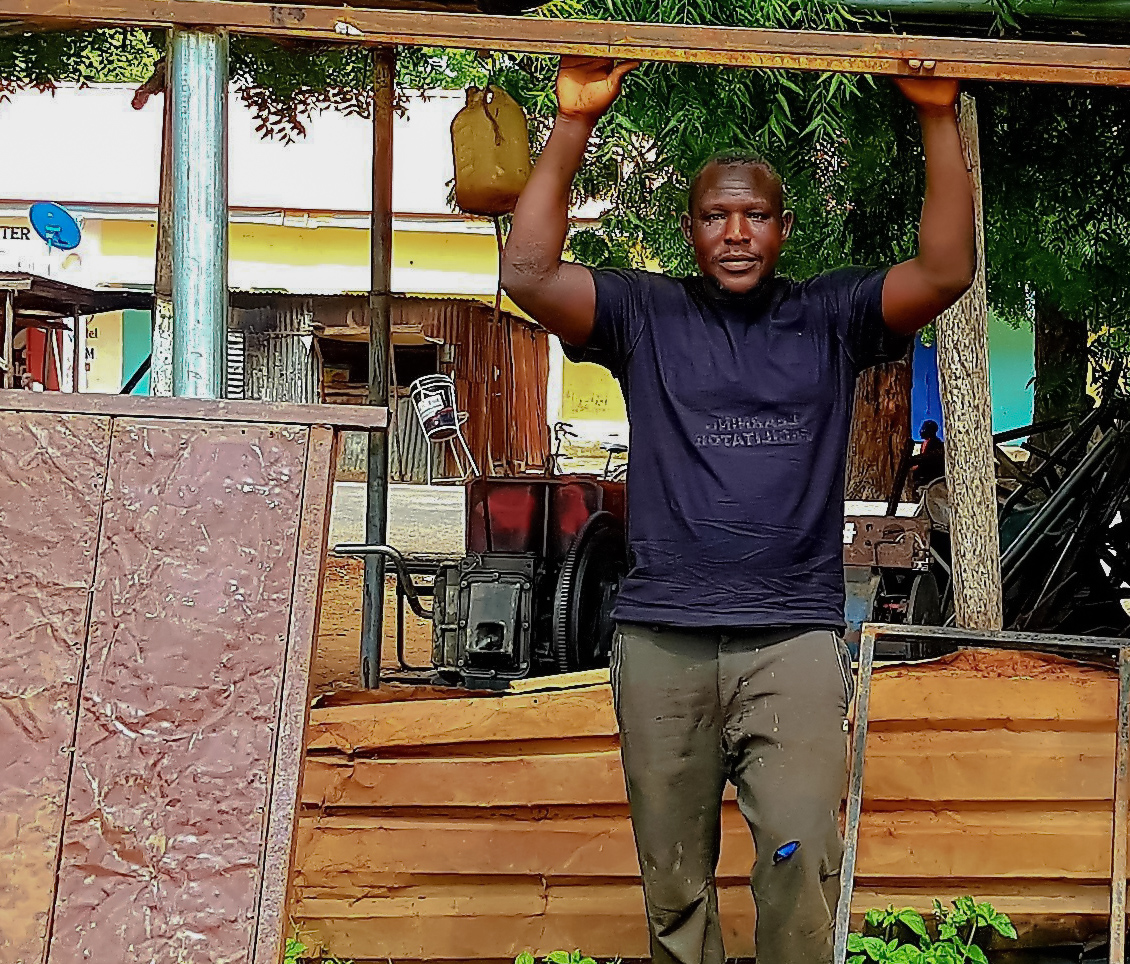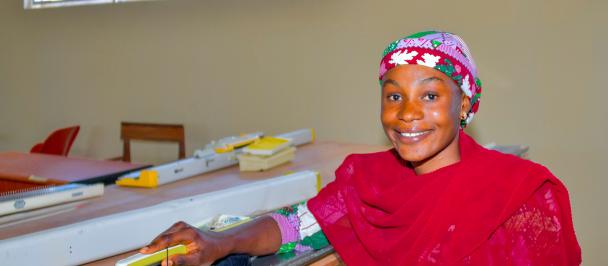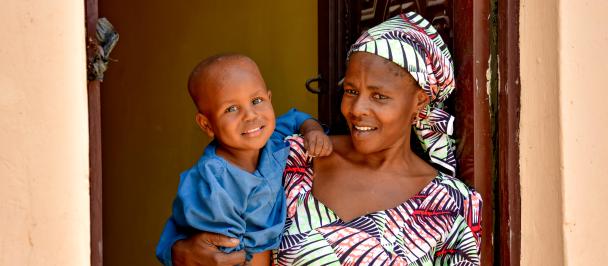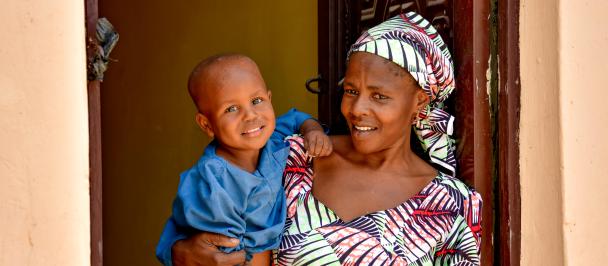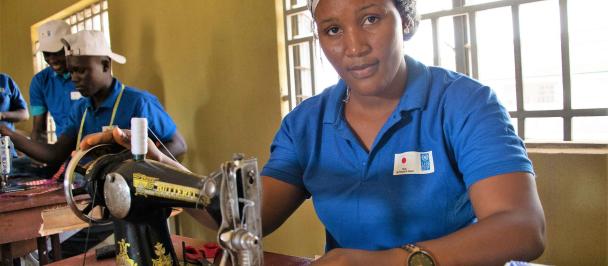Hassan Ahmadu is a welder and farmer from Gwoza town in Borno State. With a family of 5, survival has been a challenge for Hassan since 2013, when his house and shop were destroyed during an insurgent attack from the conflict that has impacted north-eastern Nigeria since 2009.
Hassan Ahmadu
The crisis has had devastating results: lives lost, homes, schools, health centres and markets destroyed, access to livelihoods restricted, leaving millions of people displaced and in poverty.
Hassan shares his experience:
“I was a farmer, and a welder in training before the conflict began. When they attacked our town, my house and shop were destroyed, my brother and nephew were killed, and I sustained an injury which left a permanent limp on my left leg. We left everything and ran for safety.”
Seeing the critical need for community self-sustenance opportunities, the UNDP, and European Union, through the Support to Reconciliation and Reintegration Project is creating a path for impacted populations in the north-east to rebuild sustainable sources of livelihood. Such measures, paired with engagements on peacebuilding and conflict prevention, are important ingredients to the effective transition from conflict, as they catalyze healing while boosting the recovery of local economies of these communities.
Over 500 people across Banki, Bama and Gwoza in Borno State in north-east Nigeria were selected for this project. They underwent an 8-week mental health and psychosocial support process, participated in social cohesion sessions, and were supported to select their most preferred skills for improvements. They received business support to help them revive their lost livelihoods. They also now belong to a cohort of community members that are in regular discussions about long-term healing from the scars of the conflict. Hassan is one of them, he chose to focus on welding as his main source of income:
“I chose wielding as a new way to support myself. I had the skills before the conflict started, but now I have the tools I need to grow my business. I was supported with a welding kit which comprises of 2000 watts Generator, a saw, 2 hammers, 2 spanners, I plyer, I pinches, 2 work overalls, 1 pair of hand gloves, 1 safety googles,1 filing machine and 1 electro spinner, which has helped me get my business off the ground and gain the needed income to support my family.”
From the proceeds of his new business, Hassan is building a house for his family, enrolled all his children in school, sponsors three of his late brother’s children in school and has made about a million-Naira profit in less than a year. He is proud to have five youth training under him and will still train more, this he says, is his own way of giving back to the community.
In a discussion with His Royal Highness the Emir of Gwoza, the effort of Hassan to employ local youth through his business was mentioned. The Emir specifically acknowledged the significance of improving local skills and enabling youth in the community to become self-sufficient, as a way of breaking choices they could make for joining insurgent groups.

 Locations
Locations